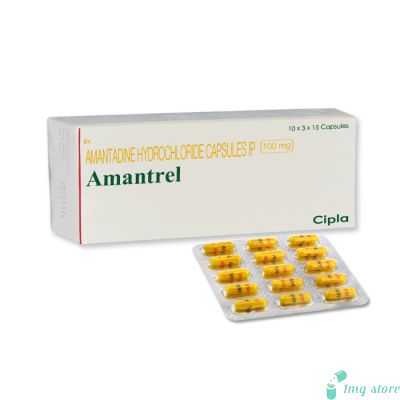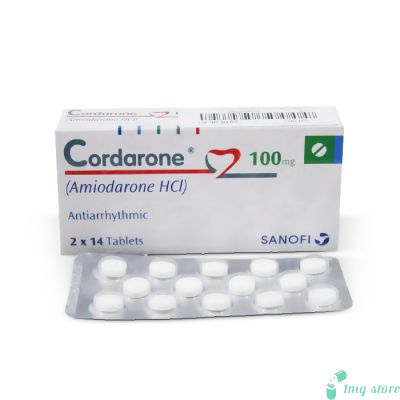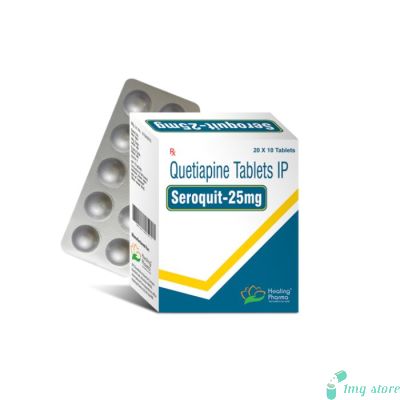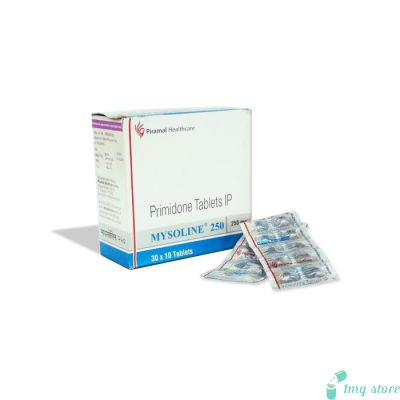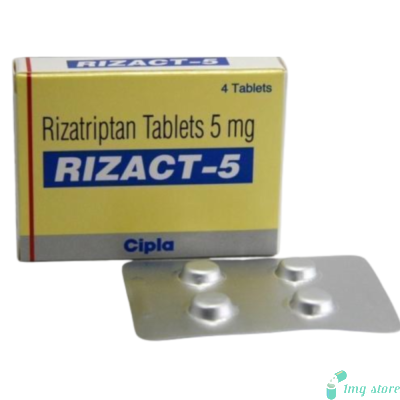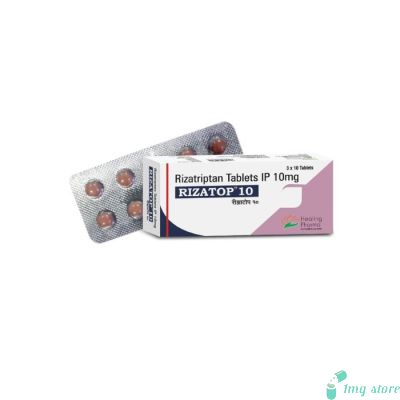Dicorate ER Tablet (Divalproex Sodium)
Dicorate ER Tablet is a medication that requires a prescription and contains Divalproex Sodium. It is utilized to treat specific forms of seizures, which involve sudden and uncontrolled electrical disturbances in the brain, resulting in abnormal behavior and loss of consciousness.
Dicorate ER Tablet (Divalproex Sodium) to Treat Various Conditions
Dicorate ER is a medication that contains the active ingredient Divalproex Sodium. It belongs to the class of drugs known as anti-epileptic medications. Dicorate ER is primarily used to treat and manage epilepsy, a neurological disorder characterized by recurrent seizures. Seizures occur due to abnormal electrical activity in the brain, and Dicorate ER works by stabilizing these electrical signals, thereby reducing the frequency and severity of seizures. It is also sold under the brand name Depakote.
Dicorate ER is an extended-release tablet, which means that the medication is released slowly into the body over a prolonged period. This allows for a steady and continuous level of the active ingredient in the bloodstream, providing better control of seizures compared to immediate-release formulations.
In addition to its anti-epileptic properties, Dicorate ER may also be prescribed for other conditions such as Bipolar Disorder and Migraine headaches. It is believed to work by affecting certain chemicals in the brain that are involved in these conditions.
It is important to note that Dicorate ER should only be taken under the supervision and prescription of a qualified healthcare professional. The dosage and duration of treatment will vary depending on the individual's condition and response to the medication. Regular monitoring and follow-up with the healthcare provider are essential to ensure the effectiveness and safety of Dicorate ER. This includes both prescription and over-the-counter medications. The doses should be taken as per instructed by your physician or healthcare provider. If you miss the dose then take it as soon as you remember, however, if it is time for the net dose then skip the missed dose and continue with your prescription. It should be swallowed whole and not crushed, chewed, or broken. If a patient is unable to swallow it, it can be dissolved in water or apple juice.
In conclusion, Dicorate ER is an anti-epileptic medication that contains Divalproex Sodium. It is used to treat epilepsy, bipolar disorder, and Migraine headaches. As an extended-release tablet, it provides a controlled release of the medication over time. However, it should only be taken as prescribed by a healthcare professional, and any concerns or side effects should be discussed with the healthcare provider.
Divalproex Sodium benefits for individuals who require its use:
Epilepsy Management: Divalproex Sodium is primarily prescribed for the treatment and management of epilepsy. It helps to reduce the frequency and severity of Seizures, allowing individuals with epilepsy to lead more normal lives.
Bipolar Disorder Control: Divalproex Sodium is also used in the treatment of bipolar disorder, a mental health condition characterized by extreme mood swings. It helps to stabilize mood and prevent manic episodes, reducing the intensity and frequency of mood fluctuations.
Migraine Prevention: Divalproex Sodium is sometimes prescribed as a preventive medication for migraines. It can help reduce the frequency, duration, and intensity of migraine headaches, improving the quality of life for individuals who suffer from this debilitating condition.
Extended-Release Formulation: Divalproex Sodium is available in an extended-release formulation, such as Dicorate ER. This allows for a slow and steady release of the medication into the bloodstream, providing continuous and consistent therapeutic levels. The extended-release formulation reduces the need for multiple daily doses, improving convenience and medication adherence.
Versatility: Divalproex Sodium is a versatile medication that can be used to treat multiple conditions. Its efficacy in managing epilepsy, bipolar disorder, and migraines make it a valuable option for individuals who may have coexisting conditions or require treatment for more than one condition.
When taking Divalproex Sodium, also known as Dicorate ER, it is essential to be aware of certain precautions
Neurology Drug: Divalproex Sodium is categorized as a Neurology Drug, meaning it primarily affects the functioning of the nervous system. It is specifically used in the treatment of neurological conditions such as epilepsy and bipolar disorder. As such, it is important to adhere to the prescribed dosage and follow the healthcare professional's instructions carefully.
Liver Function Monitoring: Depakote Sodium might possibly influence liver capability. Standard liver capability tests might be expected to screen the medication's effect on the liver and guarantee its protected use. It is crucial to inform the healthcare provider about any pre-existing liver conditions or any history of liver problems before starting the medication.
Blood Monitoring: The use of Divalproex Sodium may occasionally lead to changes in blood parameters. Blood tests may be necessary to monitor blood cell counts, including platelet, white blood cell, and red blood cell counts. If any significant changes occur, appropriate measures will be taken by the healthcare professional.
Pancreatitis Risk: There have been rare reports of Divalproex Sodium causing pancreatitis, an inflammation of the pancreas. Seek immediate medical attention if you experience severe abdominal pain, persistent nausea or vomiting, or significant changes in appetite while taking this medication.
Birth Defects and Pregnancy: Divalproex Sodium carries a risk of birth defects if taken during pregnancy, particularly in the first trimester. Women of childbearing age should use effective contraception while taking this medication. If pregnancy is planned or suspected, it is crucial to discuss the potential risks and benefits with a healthcare professional.
Suicidal Thoughts and Behavior: Certain anti-epileptic medications, including Divalproex Sodium, have been associated with an increased risk of suicidal thoughts and behavior. It is important to closely monitor any changes in mood, behavior, or worsening depression, and report them to a healthcare professional immediately.
Medication Adherence: It is crucial to take Divalproex Sodium as prescribed and adhere to the recommended dosage schedule. Skipping doses or abruptly stopping the medication can lead to a recurrence of seizures or other neurological symptoms. If any changes to the treatment plan are necessary, consult with a healthcare professional.
Divalproex Sodium, also known as Dicorate ER, is used for the following purposes:
Epilepsy Management: Divalproex Sodium helps reduce the frequency and severity of seizures in individuals with Epilepsy.
Bipolar Disorder Treatment: It stabilizes mood and prevents manic episodes in people with bipolar disorder.
Migraine Prevention: Divalproex Sodium can be used to reduce the frequency and intensity of migraine headaches.
Common side effects of Divalproex Sodium may include:
Drowsiness: Feeling excessively sleepy or fatigued.
Dizziness: Sensation of lightheadedness or unsteadiness.
Nausea and vomiting: Feeling sick to the stomach or vomiting.
Abdominal discomfort: Pain or discomfort in the stomach area.
Changes in appetite or weight: Increased or decreased appetite and potential weight gain.
Hair loss: Thinning or loss of hair.
Tremors: Involuntary trembling or shaking.
Blurred vision: Difficulty in focusing or experiencing blurred vision.
Mood changes: Emotional fluctuations, such as depression, irritability, or agitation.
Liver problems: Rarely, Divalproex Sodium may cause liver-related issues. Signs can include jaundice (yellowing of the skin or eyes), dark urine, or abdominal pain.
It is important to note that not everyone will experience these side effects, and their severity can vary. If any side effects persist, worsen, or become concerning, it is crucial to consult your healthcare provider for further evaluation and guidance. They can assess your individual situation and help manage any side effects effectively.
Q: Can Divalproex Sodium be used for conditions other than epilepsy and bipolar disorder?
A: Yes, Divalproex Sodium may also be prescribed for the prevention of migraine headaches. It helps reduce the frequency and intensity of migraines, offering relief to individuals who experience these debilitating headaches.
Q: Can I consume alcohol while taking Divalproex Sodium?
A: It is generally recommended to avoid or limit alcohol consumption while taking Divalproex Sodium. Alcohol can enhance the sedative effects of the medication and may increase the risk of side effects such as drowsiness and dizziness. It's best to consult your healthcare provider for personalized advice regarding alcohol use during your treatment.
Q: Can Divalproex Sodium cause weight gain?
A: Weight gain is a possible side effect associated with Divalproex Sodium. It is believed to be caused by a combination of factors, including increased appetite and metabolic changes. If you are concerned about weight gain while taking this medication, discuss it with your healthcare provider who can provide guidance on managing any potential weight-related issues.
Q: Can Divalproex Sodium be used in children?
A: Yes, Divalproex Sodium can be prescribed for children with certain conditions such as epilepsy or migraines. However, the dosage and treatment plan will be carefully determined by the healthcare provider based on the child's age, weight, and individual needs. Regular monitoring and follow-up are essential to ensure the medication's effectiveness and safety in pediatric patients.
Q: Can I suddenly stop taking Divalproex Sodium?
A: It is not recommended to abruptly stop taking Divalproex Sodium without consulting your healthcare provider. Suddenly discontinuing the medication can lead to the recurrence of seizures or other symptoms. Your healthcare provider will guide you on how to safely taper off the medication if it needs to be discontinued or if a change in treatment is necessary.
Here are some notable drug interactions associated with Divalproex Sodium:
Other Antiepileptic Drugs: Concurrent use of Divalproex Sodium with other antiepileptic drugs may increase the risk of side effects or toxicity. Your healthcare provider may need to adjust the dosages of these medications or monitor you closely for any adverse effects.
Central Nervous System (CNS) Depressants: Divalproex Sodium has sedative effects and can enhance the central nervous system depressant effects of other medications such as benzodiazepines, opioids, antipsychotics, and alcohol. Combining these substances can lead to increased drowsiness, dizziness, and impaired cognitive function. It is important to exercise caution when using CNS depressants concurrently with Divalproex Sodium and follow your healthcare provider's instructions.
Blood-Thinning Medications: Divalproex Sodium may interfere with the effectiveness of blood-thinning medications, such as warfarin or aspirin. This can increase the risk of bleeding. Regular monitoring of blood clotting parameters may be necessary if you are taking these medications together.
Medications Metabolized by Liver Enzymes: Depakote can affect liver enzymes responsible for metabolizing certain medications. This can lead to altered blood levels and the effectiveness of drugs such as phenytoin, carbamazepine, lamotrigine, and selective serotonin reuptake inhibitors (SSRIs). Your healthcare provider may need to adjust the dosages of these medications or closely monitor their blood levels.
Highly Protein-Bound Drugs: Divalproex Sodium can displace other drugs from their protein-binding sites in the bloodstream, leading to increased free drug concentrations. This interaction may occur with medications like phenytoin, aspirin, and valproic acid. Your healthcare provider may need to adjust the dosages of these medications based on the potential interaction.
Medications that Cause Pancreatitis: Combining Divalproex Sodium with medications known to increase the risk of pancreatitides, such as valproic acid and topiramate, may further elevate the risk. Your healthcare provider should closely monitor for signs and symptoms of pancreatitis if you are taking these medications together.
| Manufacturer | : | Sun Pharma, India |
| Equivalent Brand | : | Depakote |
| Generic Search | : | Divalproex Sodium |








